EDI Roadshow - Bristol Medical School
The Bristol Medical School has proudly been exhibiting a number of posters produced by academics, students and professional service staff across the school, demonstrating the various EDI related information and projects that are currently ongoing within the Medical School.
Ranging from topics such as womens equality, equal pay, religious beliefs and general themes of acceptance and tolerance, the EDI roadshow serves as a strong informational, yet also inspirational showcase of ideas and plans to better allign the Bristol Medical School with our new and improved EDI strategy.
Please take a look through the following posters which are currently being showcased in the EDI Roadshow 2024:
Actor Recruitment Poster
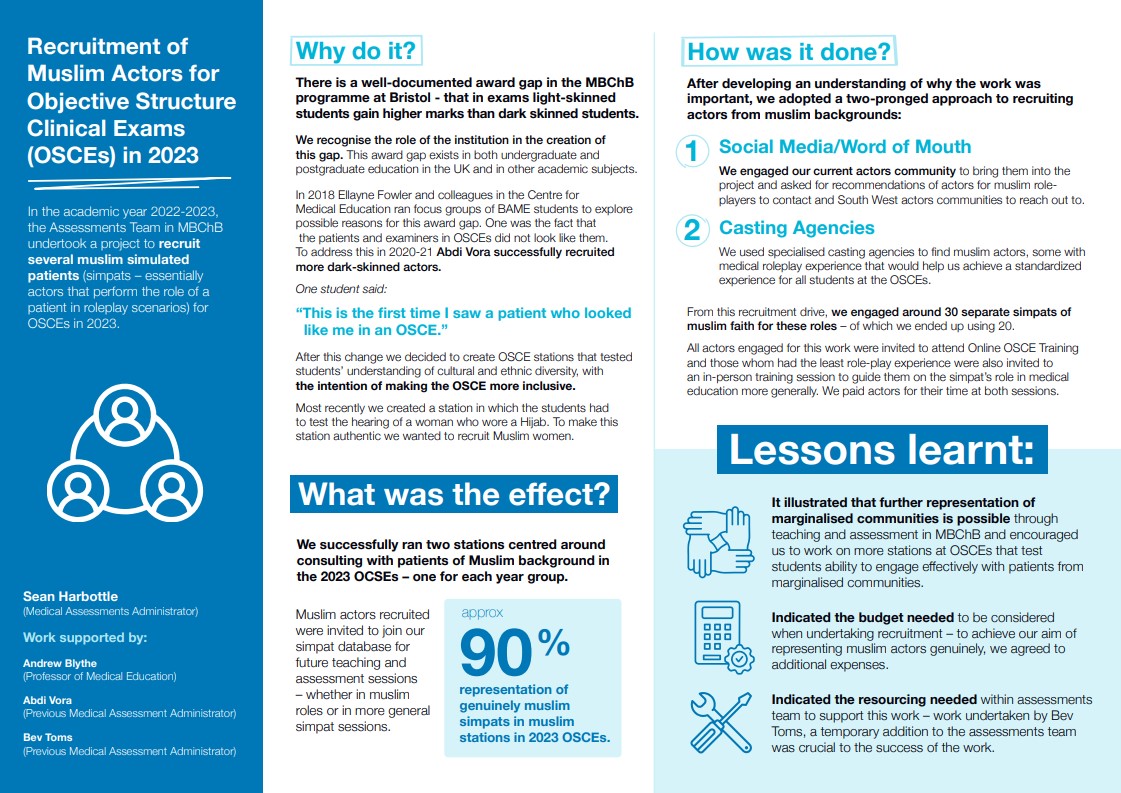
Actor Recruitment Poster.pdf (PDF, 159kB)
This poster explores how steps have been taken within the recruitment process of actors used in OCSEs tutorials. This work was carried out after there was a well-documented award gap in the MBChB programme at Bristol - that in exams light-skinned students gain higher marks than dark skin students.
In 2018 Ellayne Fowler and colleagues in the Centre for Medical Educations ran focus groups of BAME students to explore possible reasons for this gap. This poster shows this information and how the BRMS has planned to solve this issue.
How To Support Apprentices Poster

Apprenticeship poster.pdf (PDF, 91kB)
This poster was made to inform on the reasons why apprenticeship's are valuable to the Bristol Medical School in bringing a number of benefits, creating opportunities, but also coming with some challenges. This poster explores these topics and discusses in relation to Equality, Diversity and Inclusion.
Core Skills Training Poster
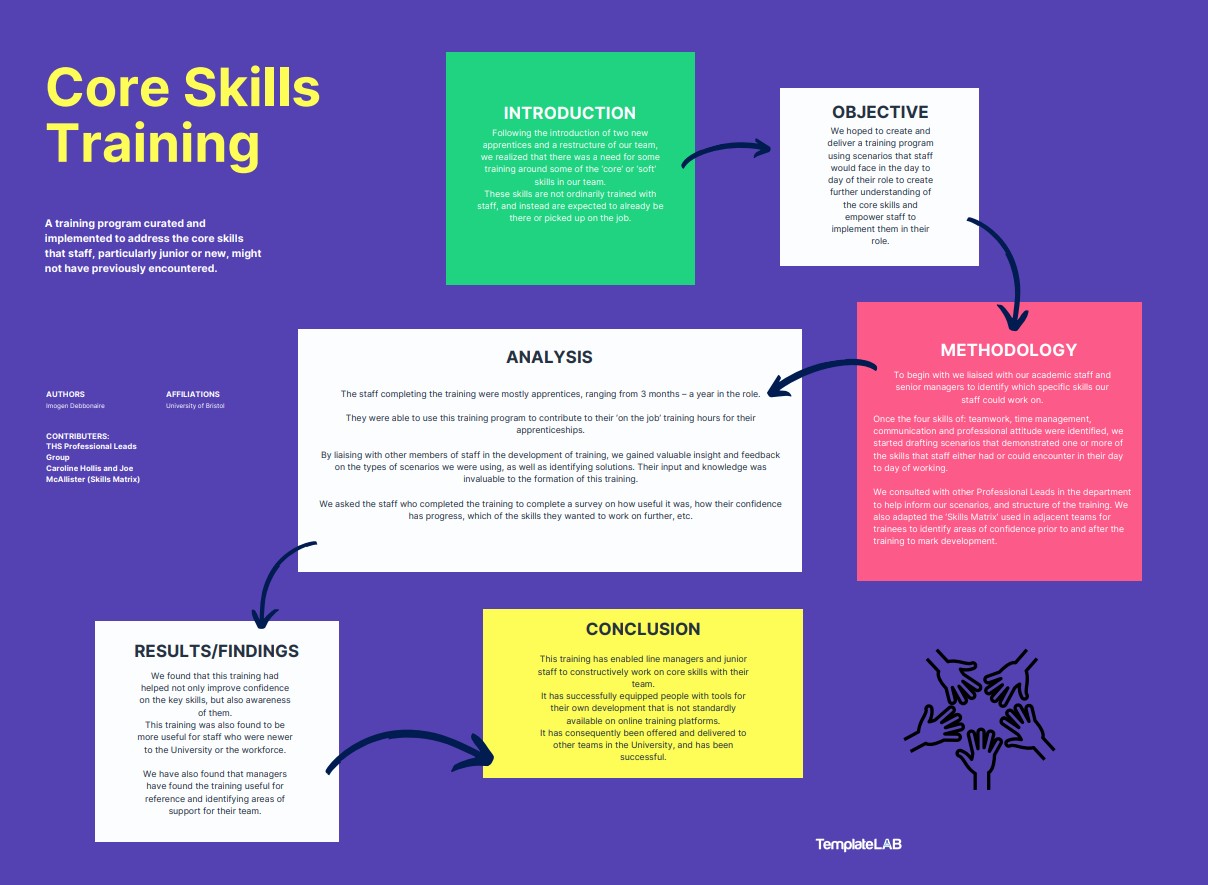
Core Skills poster.pdf (PDF, 54kB)
This poster shows the identification of need, the formulation and the delivery of a Core Skills Training Program that was developed and delivered by Imogen Debbonaire to teams in Bristol Medical School and elsewhere in the University. Core or ‘soft’ skills can be defined as behaviours or traits that are necessary to thrive in the workplace. This poster shows the method of identifying, building on and gaining Core Skills through training schemes across the Bristol Medical School and how this has been developed in line with the EDI strategy.
Created and published by Imogen Debbonaire.
Cultural Review Poster
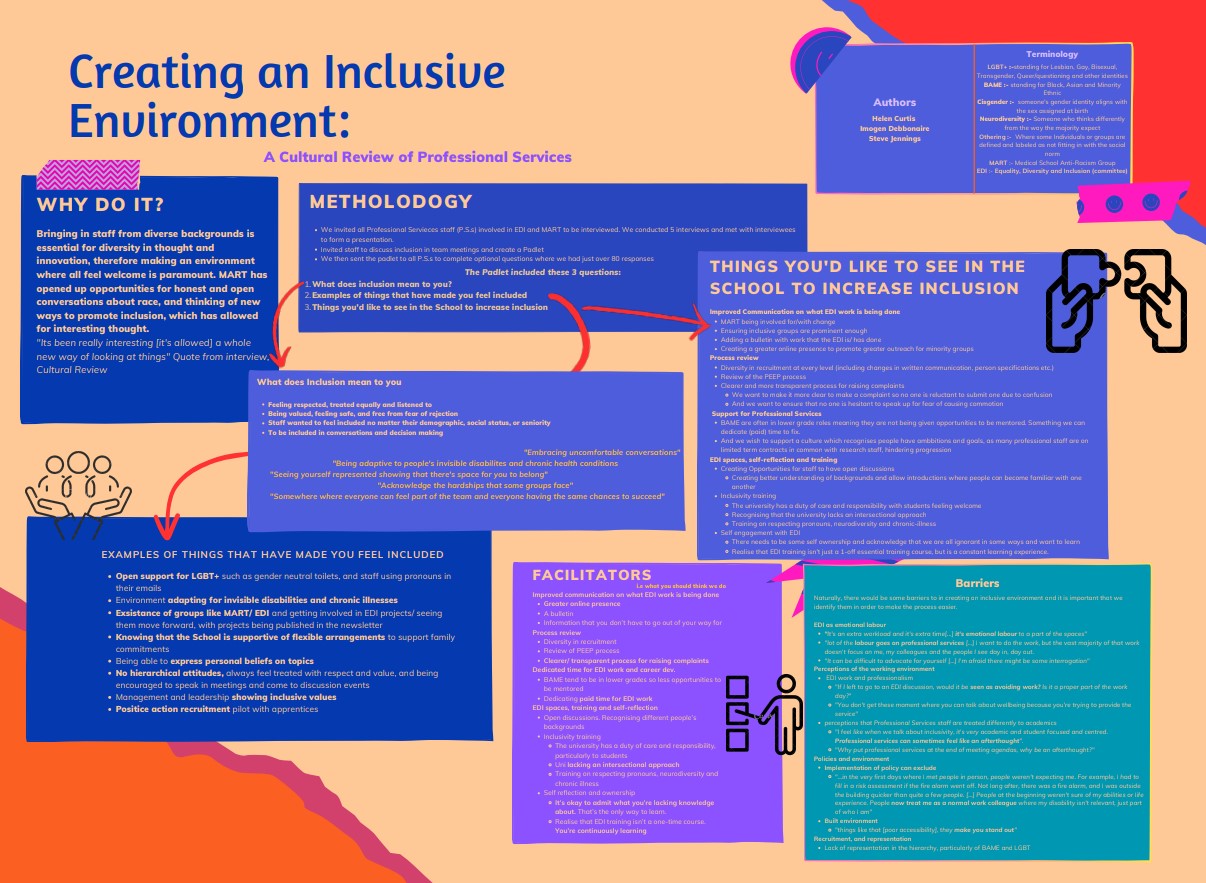
Cultural Review Poster.pdf (PDF, 437kB)
This poster is a Cultural Review of the professional services within the Bristol Medical School, identifying key areas where an inclusive environment has been garnered, or areas that may need improvement. The poster also covers personal anecdotes of professional service staff experiences of inclusion, and asks what can be done to make everyone feel more included?
Authors of this Poster: Helen Curtis, Imogen Debbonaire, Steve Jennings.
Decolonising the Curriculum Poster
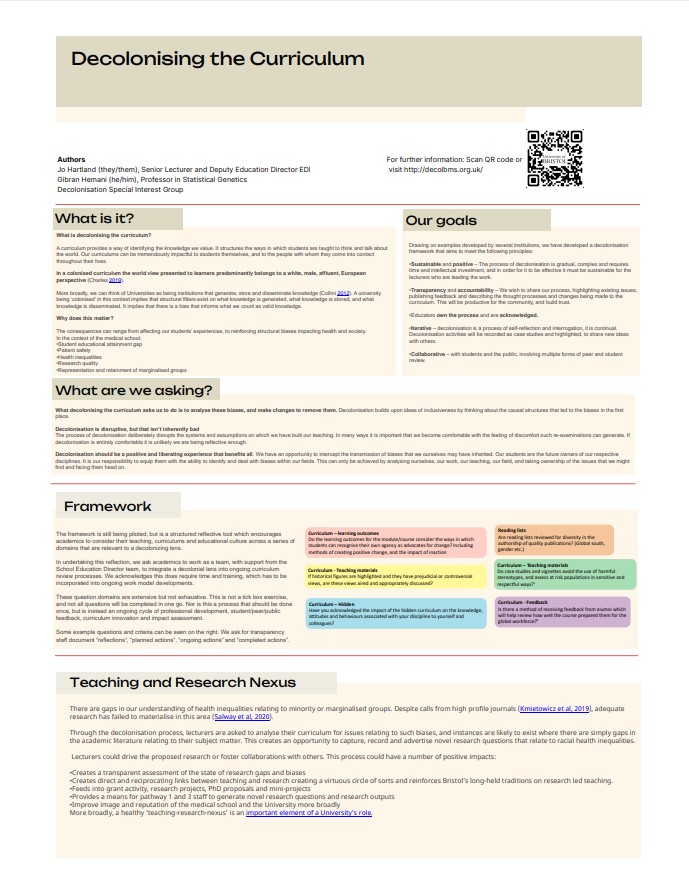
Decolonising the Curriculum Poster.pdf (PDF, 316kB)
Decolonising the curriculum has been a major project that has been led by Helen Curtis and conducted by Jo Hartland and his team, identifying parts of curriculum which are possibly deemed out-dated, or mis-represented to try and rectify these issues to better satisfy the needs of the EDI strategy. The aim is to make the BRMS a more inclusive experience, as well as ensuring the learning materials that are studied in class are more socially and culturally relevant, with a focus on sustainability, transparency and accountability.
Authors: Jo Hartland (They/them), Gibran Hemani (He/Him), Decolonisation Special Interest Group.
EDI in Health and Science Poster
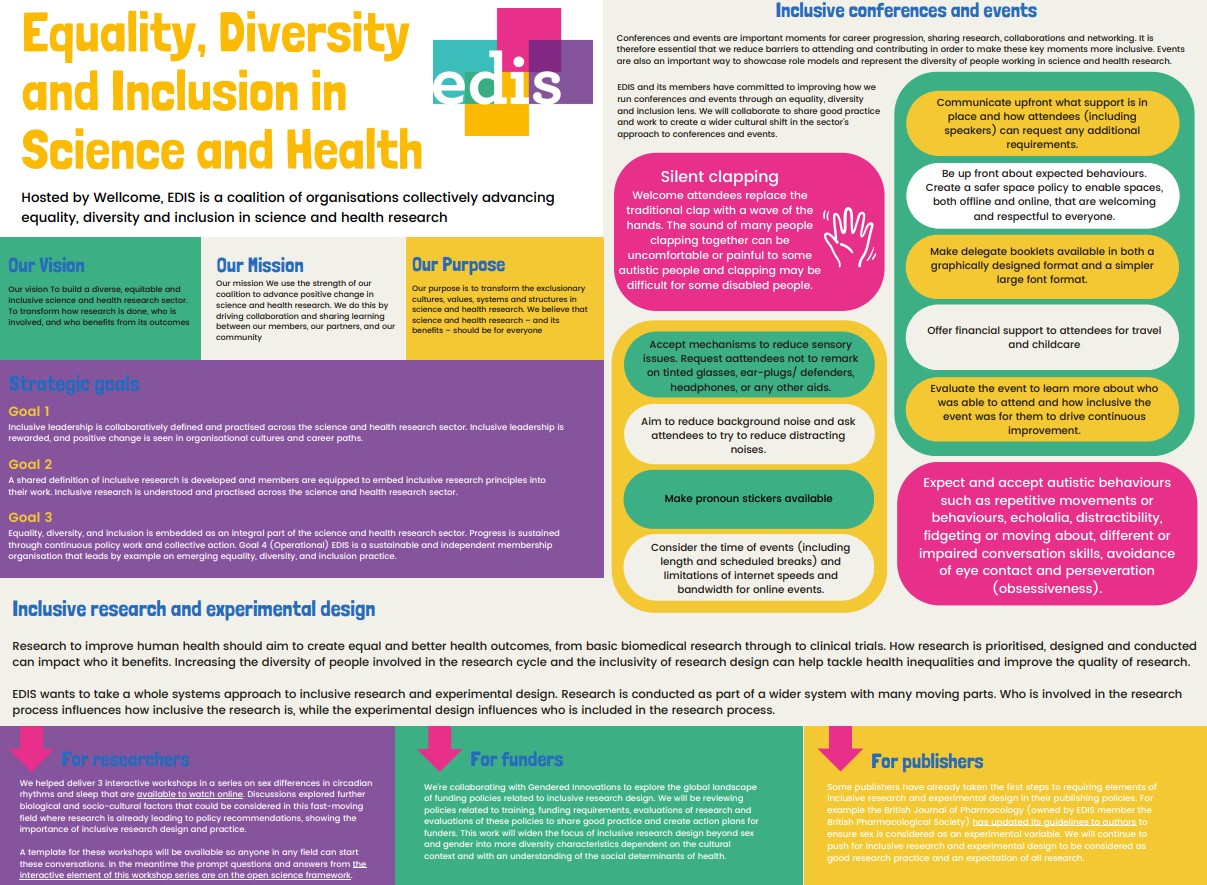
EDI in Health and Science Poster.pdf (PDF, 96kB)
Research to improve human health should aim to create equal and better health outcomes, from basic biomedical research through to clinical trials. How research is prioritised, designed and conducted can impact who it benefits. Increasing the diversity of people involved in the research cycle and the inclusivity of research design can help tackle health inequalities and improve the quality of research.
This poster explores the whole systems approach that the BRMS is taking as part of the EDI strategy to improve inclusive research and experimental design.
Authors: Rachel Goodman-Hill.
Inclusive Interviewing Poster
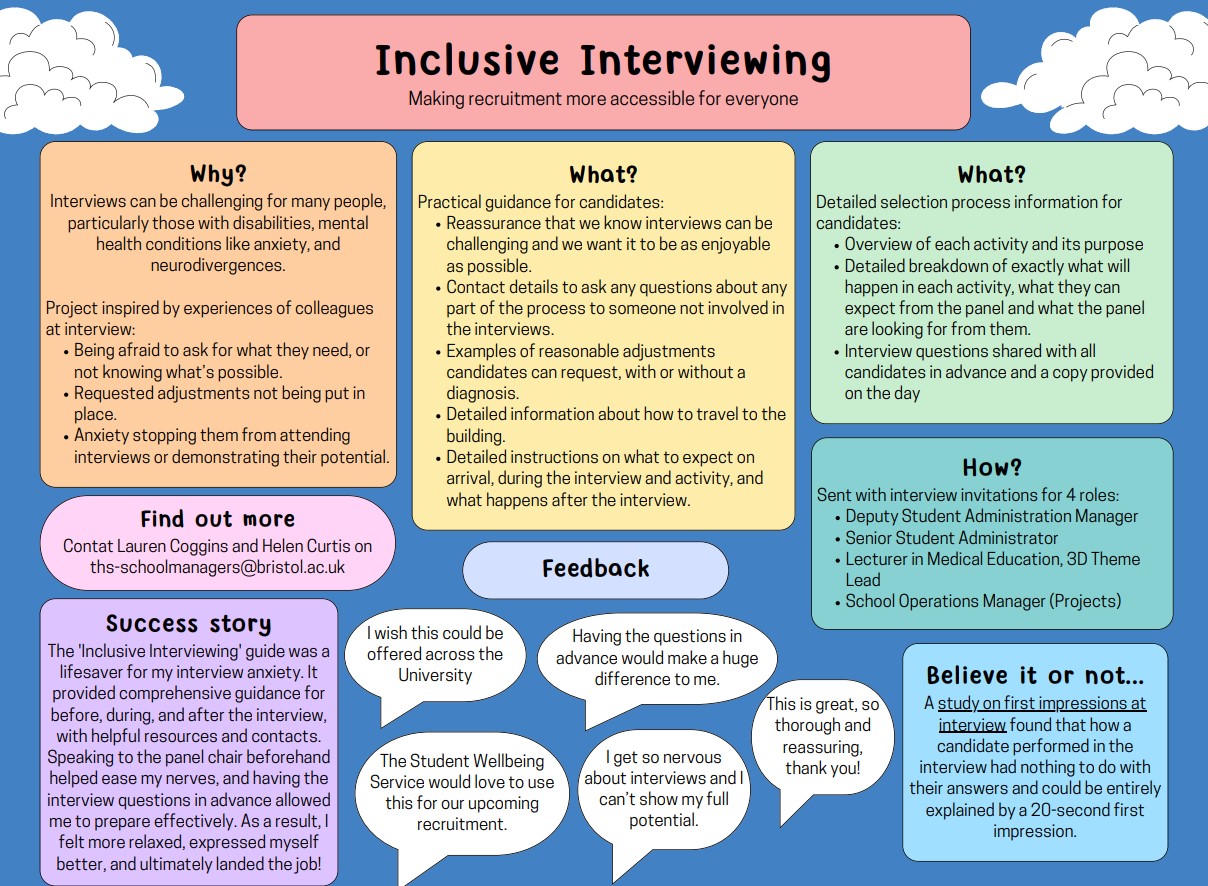
Inclusive Interviewing Poster.pdf (PDF, 1,527kB)
This poster was made to inform on the steps the BRMS has made to transform their interviewing process in order for it to be more inclusive and promote a more diverse workspace. This in turn will create more equality within the workforce and will help those applying to the university have the best possible chance of gaining employment based on their skills and merits, as opposed to any physical characteristic.
Authors of poster: Helen Curtis (She/Her), Lauren Coggins (She/Her)
Health Research: Working With Us Poster
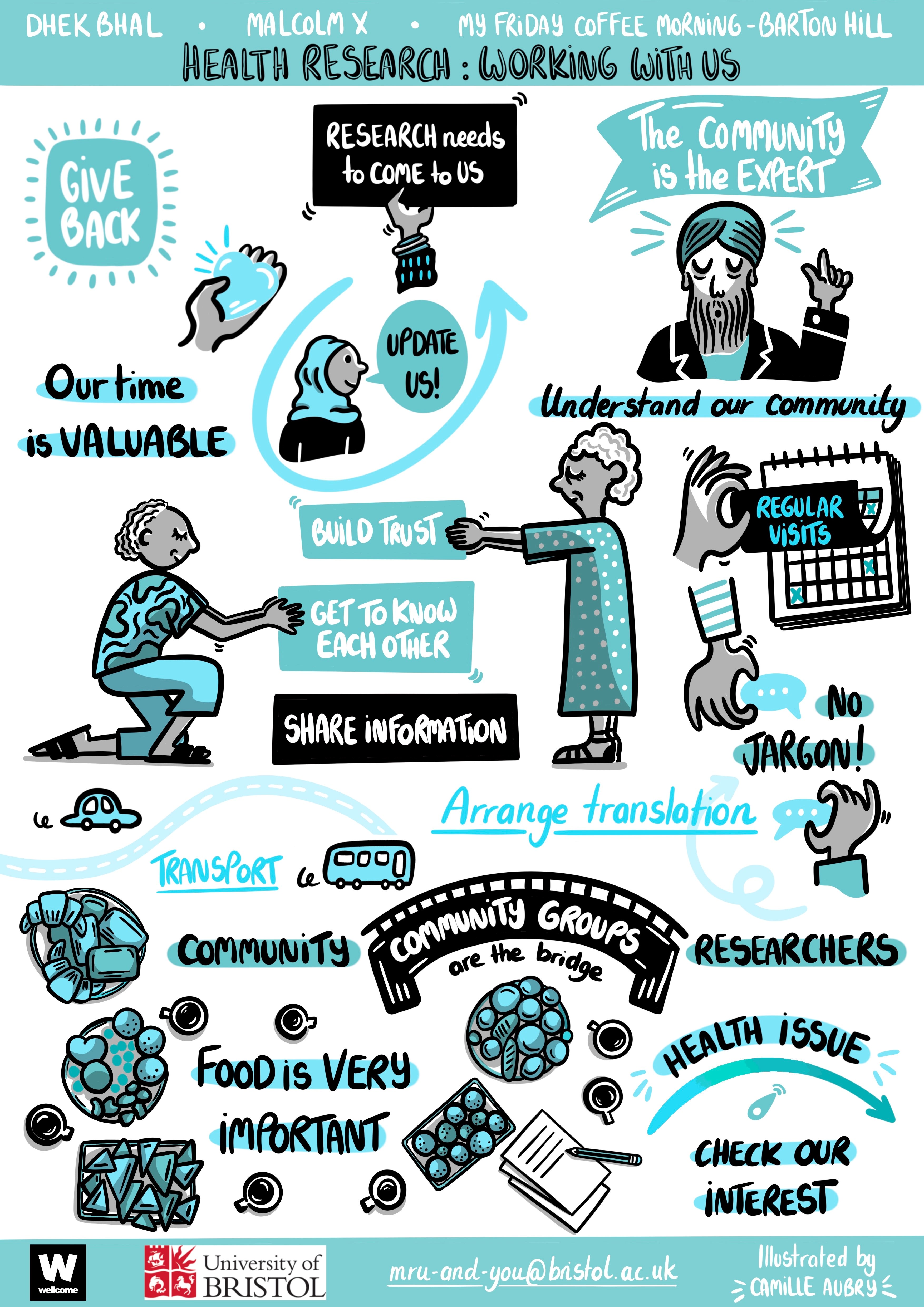
This poster shows the factors that all go into health research, ways in which you can build trust between partners, and engage the community to ensure that research continues and stays at an optimal level within the Bristol Medical School.
Illustrated by: Camille Aubrey
Working with Students on EDI
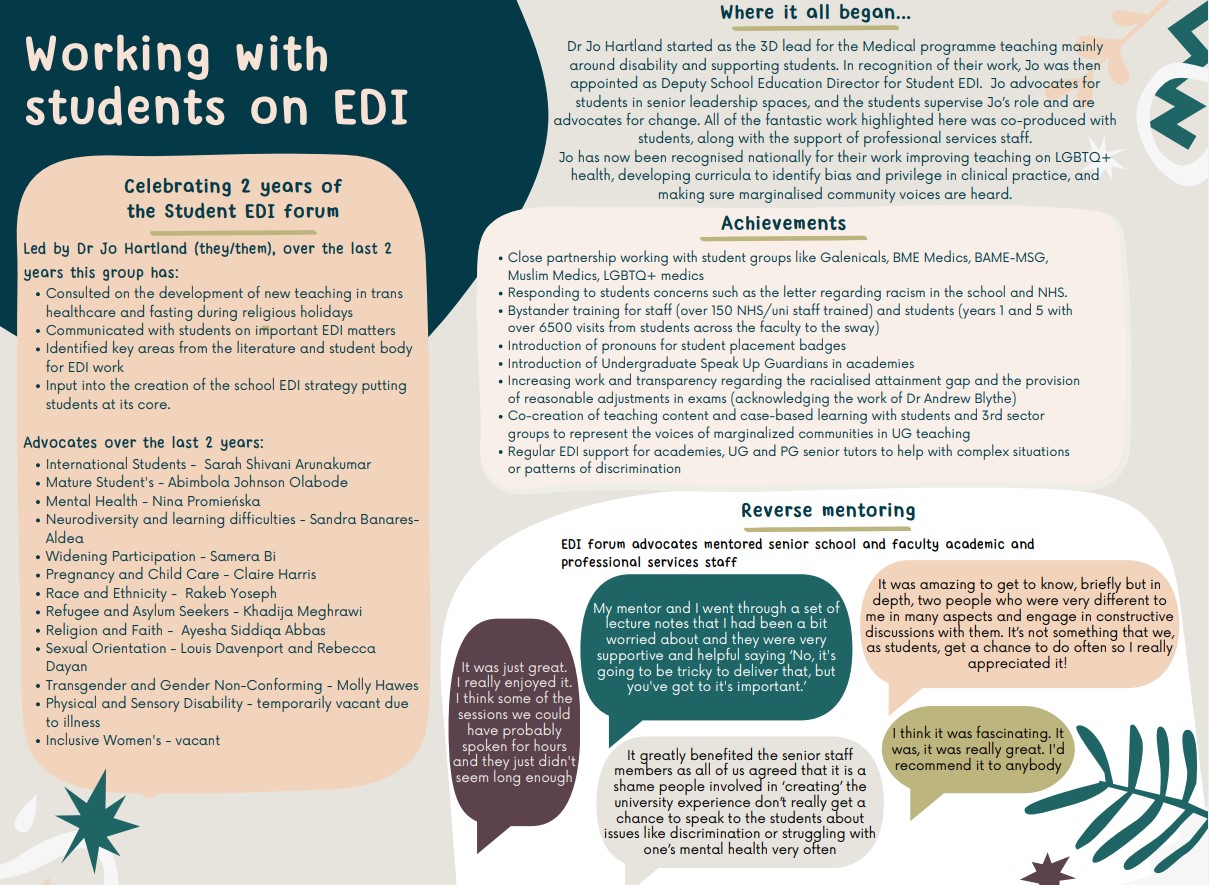
Student EDI Poster.pdf (PDF, 78kB)
This poster demonstrates the numerous forms of networks that exist within the Bristol Medical School, that can be explored by other students and staff to develop communities within EDI. This then strengthens the working relationships between students and colleagues, as well as to improve and decolonise the curriculum. This poster highlights the extensive work of Jo Hartland, the Deputy School Student Education Director for Student EDI, along with the wonderful work that has been co-produced by students and professional service staff to achieve these EDI goals.
Authors: Jo Hartland (They/Them)
Updating guidance for Maternity, Paternity, Adoption leave and Childcare
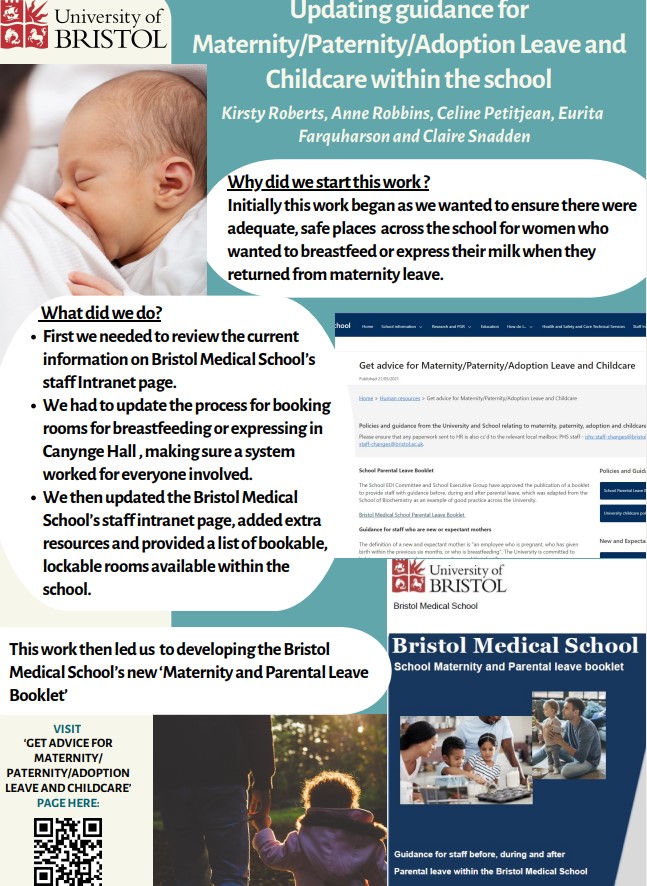
Updating Guidance for Maternity Paternity Adoption.pdf (PDF, 4,378kB)
This poster demonstrates the work that has been carried out in the Bristol Medical School by the senior staff in leadership roles to ensure that there are adequate, safe spaces across the Bristol Medical School for women who wanted to breastfeed or express their milk when they returned from maternity leave.
This work included reviewing and then updating the current information on the Bristol Medical school's staff intranet page, as well as updating the process for booking rooms for breastfeeding to ensure it is more streamlined and worked well for all involved, adding a number of extra resources and providing a list of bookable, lockable rooms available within the school.
Authors: Kirsty Roberts, Anne Robbins, Celine Petitjean, Eurita Farquharson and Claire Snadden.
